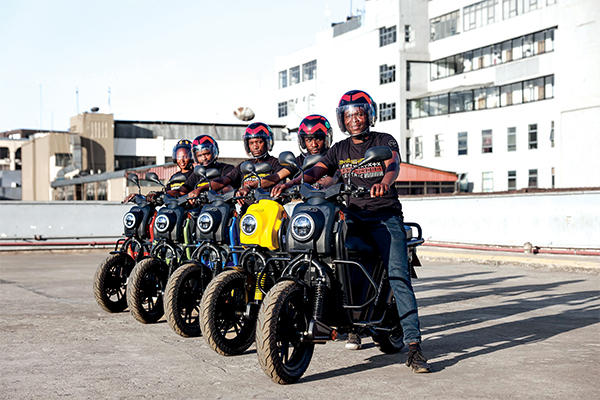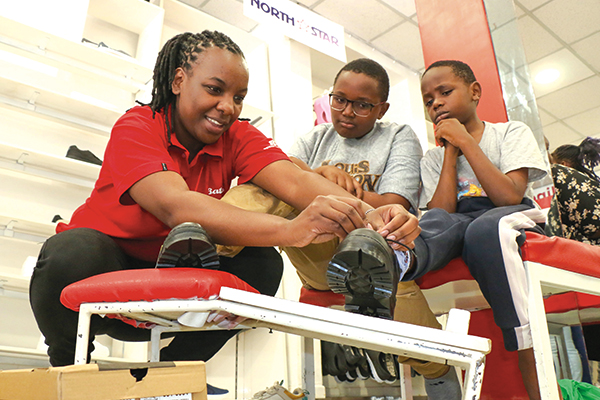By Everisto Benyera, Associate Professor of African Politics, Department of Political Sciences, University of South Africa, College of Human Sciences, University of South Africa
Gambian maritime law expert Fatou Bensouda has just entered the final year of a nine-year term as Chief Prosecutor of the International Criminal Court. Her tenure of office will end on 15 June 2021.
Bensouda’s record so far stands at 28 cases, with eight convictions and four acquittals; three cases were dropped due to the deaths of the accused. Of her 35 arrest warrants, 17 resulted in detentions, while 14 suspects remain at large. Add to this picture a staggering Euro 150 million spent on prosecutions every year.
During her tenure, all of those tried in 12 cases were Africans. Among those acquitted were Kenyan president Uhuru Kenyatta and his deputy William Ruto, who were tried over the country’s 2007 post-election violence. More recently, the former president of Côte d’Ivoire, Laurent Gbagbo, was also acquitted but awaits an appeal hearing.
Eighteen years since its formation, it is debatable whether the introduction of the court has achieved what was intended. In my considered opinion, the court failed to live up to both its mandate and expectations. Above all, it failed to save and serve victims. The court’s performance does not match the pomp and fanfare that accompanied its launch. Eight convictions in nearly two decades and billions of dollars spent is not a good track record.
In a recent paper I set out what I view to be the political flaws of the International Criminal Court. From a decolonial perspective, I explore the way in which the court was originally set up, and how the resilience of colonialism has hampered its progress to the present day. The denouement has been its focus on African cases to the exclusion of developed countries as well as developing regions such as Latin America.
A colonial project
Africa, Latin America and the Caribbean share a common history of slavery and colonialism at the hands of nations generally referred to as the West.There is a strong argument that the current asymmetrical relationship between the former colonisers and the formerly colonised people is a continuation of colonialism executed in other forms.
The international system which led to the formation of the International Criminal Court has therefore been characterised by Puerto Rican sociologist Ramón Grosfoguel as hierarchical, capitalist, Christian centric, patriarchal, colonial, modern, Western and Eurocentric.
To withstand the onslaught of decolonisation, this system employs several tactics such as the creation of new orders. For orders to be carried out, institutions must be created to legally fulfil that mandate. Hence, the creation of UN specialised agencies to “police” specific aspects of human life, such as health by the World Health Organisation, as well as international justice by the criminal court and the International Court of Justice.
The International Criminal Court, as part of the international criminal justice system, was formed to create and maintain a certain level of impartiality, especially in case selection, thereby ensuring that the most heinous human rights violations would never again go unpunished.
The Rome Statue’s preamble is unequivocal in its intentions, jurisdiction and vision to: put an end to impunity for the perpetrators of these crimes and thus to contribute to the prevention of such crimes.
By concentrating on prosecuting Africans, I argue in my paper, the court has simply gone down a neo-colonial path. In a world awash with cases that fall within the court’s jurisdiction, it is hard to argue why Africa is almost the exclusive “customer” of the court.
A more plausible explanation is that the court is being politically correct, carefully avoiding power politics by navigating around the world’s superpowers and their allies.
Where to from here
The International Criminal Court has 123 member countries, 33 from Africa, 19 from Asia-Pacific, 18 from Eastern Europe, 28 from Latin America and the Caribbean, and 25 from Western Europe and North America.
This makes Africa a key stakeholder, at least numerically. But the relationship between the court and the continent has deteriorated over the past decade. African despots who had hoped to use the court against their political opponents, both home and away, found the court indicting them.
Ivorian Laurent Gbagbo is an apt example. The cases of Omar al-Bashir and Uhuru Kenyatta proved that the court would not protect but instead prosecute them, and African leaders threatened to withdraw from the court.
Clearly the work that needs to be done is to increase the credibility of the International Criminal Court as an impartial dispenser of international criminal justice. It should also expand cases being pursued by the court beyond Africa, especially into Europe and the US.
But that seems highly unlikely given the acrimony between the court and Washington. The US Secretary of State, Mike Pompeo, has openly declared war on the court for its investigations into allegations of war crimes in Afghanistan.
The US even revoked Bensouda’s American visa in retaliation for the court’s investigations into alleged US war crimes in Afghanistan. It also threatened economic sanctions against any nations supporting the court against the US or its allies.
These are uncharted waters for the court, which the incoming prosecutor must navigate. Yet a confrontation with the world’s only superpower is probably exactly what the court does not need.
The US’s retaliation and threats of punishment will only leave the court as a weakened multilateral institution selectively targeting poor, weak nations, which cannot retaliate or punish it the way the US has. In the end, victims of the crimes that fall under the jurisdiction of the court are the greatest losers and will continue to lose while the court pursues a neo-colonial agenda.
My view is that International Criminal Court is facing more turmoil today than at any time since its formation.
This article was originally published on The Conversation on July 9, 2020.















